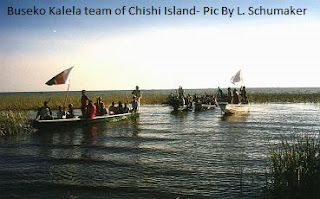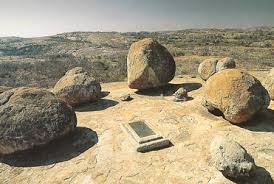LET'S DANCE KALELA

Picture by Lyn Schumaker Kalela is a spectacular type of group dance which is only practised by the people of Luapula province of Zambia. However, the Unga tribe of Bangweulu swamps treasure this type of entertainment whenever it takes place. The competition is usually between two teams from different tribes or habitats. A competing team will typically comprise 15 to 20 members, male and female , aged between 20 and 60. The composition will include drummers and dancers. All members must participate and must be good at singing and dancing. A golden voice would earn one a crucial role in the team. Each team is led by a "King", pronounced as "Chinji" in the local language. The Chinji is basically the group's lead singer who also assumes the role of composer and director. He is the leading man to watch because he determines the failure or success of his team. He is assisted by one or two teammates who will be in charge of training others in m...
 SoundCloud
SoundCloud




